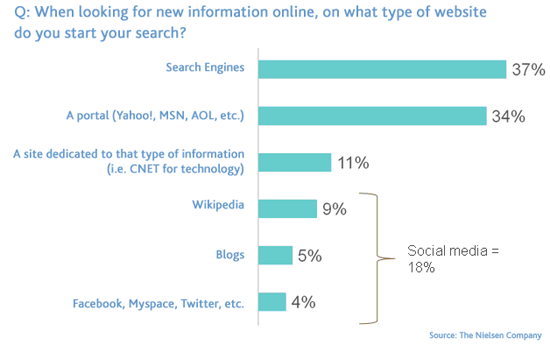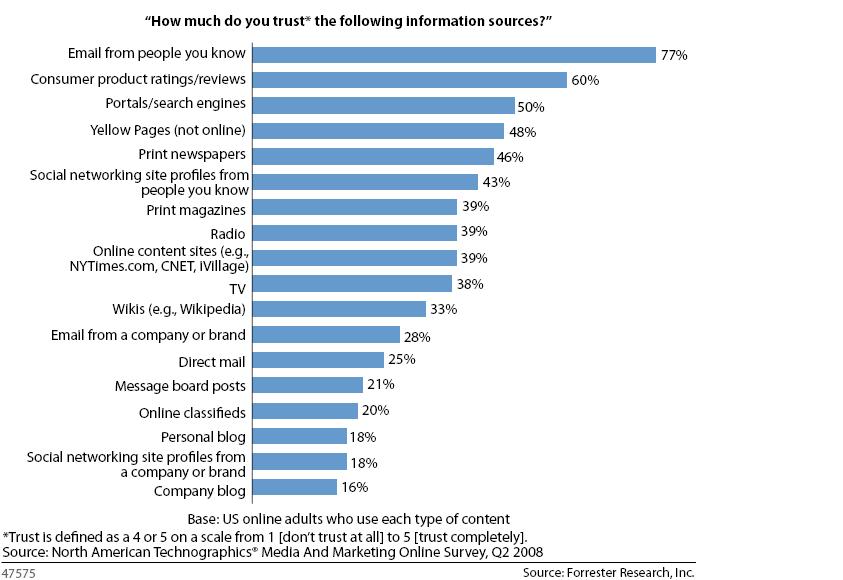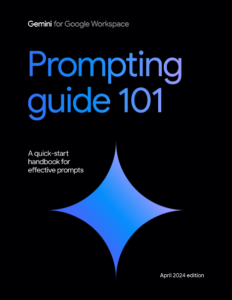
Source: Shutterstock
As consumers, I think you’ll agree, prior to making any decision purchase, most of the time, our journey begins with a combination of online search and real world conversations with friends, family and peers. As the Web matures, a greater volume of our attention and focus continues to shift from other mediums to the Web for not only purchase considerations but also for content discovery.
It’s how we learn.
It’s how we stay connected.
Nielsen released a new study that documents the extent of this shift and also captures an evolution in our online behavior as we augment traditional search engines with the search boxes within social networks. As such, Google is no longer the only hub for content discovery. The statusphere is introducing new channels that now serve as our attention dashboards and it’s the collection of streams of consciousness from those we choose to follow. Collecta, Twitter Search, Facebook News Feeds, FriendFeed, etc., serve as the gateways to insight and enlightenment.
The Nielsen study fielded in August 2009 consisted of 1,800 participants in which they looked at three main consumer segments using search (Searchers), portals (Portalists) or social media (Socializers) as their primary vehicle for content discovery.

While traditional search engines accounted for 37%, the combination of search and online portals such as Yahoo, MSN, and AOL collectively represented 71% of the sites that serve as the sources for discovery. One of the more interesting results for the purposes of fueling this discussion is that social media sites such as Wikipedia, blogs, and social networks account for 18% of where searches begin, outperforming sites that are dedicated to publishing information specifically to help individuals find deeper analysis and details.
The study found that Socializers tend to trust what their friends have to say and use their online behavior (conversations, links, published experiences) as a form of information filtration. As Neilsen observers, “Social Media is becoming a core product research channel.”
In December 2008, Forrester Research published a report that found company blogs were among the bottom of the list of trusted sources for information. In contrast, consumers stated that they trusted email from contacts, consumer ratings/reviews, search engines respectively. The social graph ranked sixth.

In 2009 however, Nielsen found that almost 15% of Socializers most trusted information they found on blogs (most likely not corporate) when researching purchases online and 20% most trusted the information they found on message boards. Facebook and/or Twitter on the other hand only represented 8% of trusted tools for seeking direction.
As search functionality and filtering improves in social media, you can expect Twitter, Facebook and other networks to grow more significant in their role for content discovery.
Connect with Brian Solis on:
Twitter, FriendFeed, LinkedIn, Tumblr, Plaxo, Plurk, Identi.ca, BackType, Posterous, or Facebook
—
Have you bought the book or the poster yet? (click below to purchase):
—
pr pr+2.0 pr2.0 public+relations marketing advertising interactive social+media socialmedia brian+solis social media media2.0 media+2.0 2.0 smo social+media+optimization marcom communication publicity advertising expert interactive spin brand branding guru social+architect







I'm wondering where YouTube fits in – they've been referred to in most research as a search engine, though they could also be considered a portal. But I definitely don't think of them as social media in this context; if they were, wouldn't that blow up the 18%?
Good point…yes. I suppose the research would also have to review how “information” is defined in YouTube search. I beleive that the search activity currently transpiring in YouTube translates to a 2nd position in the search market if the network were considered a search destination.
Good point for discussion. Well I would think that YouTube would be in the 3rd category of “A site dedicated to that type of information.” Now what type of information would YouTube be? Well they would be noted as video information. Since people generally search YouTube for information – movie trailers, how to, music videos, news etc. Though I agree with Stephanie Schwab that YouTube would be also considered to be a portal as well.
I belong to the 70% who would trust emails from people i know.
http://www.craigspr.org
Two points: The strongest statement for me in this article is: Google is no longer the only hub for content discovery. That shifts the equation for SEO. Two, I'd also like to know how people search for images and if it tracks to this study or is perhaps one step behind.
Interesting…I would also like to know the answer to this…Nielsen?
I probably use yahoo and wikipedia more than anything. Using online sources tends to be faster.
Wonderful study to put side-by-side with “social media for causes” study that looked at social media power users who believe in causes, and how these users interact with causes online. Given that the respondents self-identify as social media power users, they have a tendency to prefer information from social media. The study revealed that 61% of those aged 30-49 trust social networks and blogs to provide important information, as is the case with 44% of those 50 years or older. Why do I point this out? Because it adds a layer to the Nielson study about trusted sources, and I would venture to believe that these users are Socializers. If the general public starts with 18% search on social networks, and social media power users have high trust in social networks and blogs to provide important information, then it is only a matter of time before that 18% grows – as more people become comfortable with social media and its culture, and become “power users.” The implications – if you're a company or nonprofit, you need to provide content on social networks and blogs. What do you think, Brian? Here is the link to the Mashable article about the Social Media for Causes study: http://mashable.com/2009/03/26/social-media-non….
Excellent addition. Thank you for sharing! Reading now…
In some aspects Social May be more relevant though, and while 18% is a number we can see, we still don't have a finite number to account for sharing with peers (who in most cases share many interests).
This growing trend is changing the strategies of many brands and their communications right now, but the fact this powerful communications arena is a long term solution that requires constant updating and maintenance has not yet translated for many clients.
I still get asked for quick fix solutions in Social Media, and while it can be done (but poorly), it is harder to achieve quality results in little time, and impossible if it's a new brand with little presence.
Building a presence online takes time.
The additional SEO boosting from well planned Social Media Campaigns using Web 2.0 strategy is valuable now and only getting more important. 18% is a number with more weight to it in my opinion and experience.
We said…building an online presence does take time. Building and maintaining trust also takes time…SEO and SMO become invaluable.
The problem with social media networks as a resource is the lack of control/filtering on the results. Try to make a search on Twitter or Facebook and you'll find that the first 3 to 4 pages are controlled by bots. That's why I keep going back to the old fashioned way. Good info here Brian. –Paul
People are much more apt to trust organic WOM, whether it be good or bad. There is so much information on the Web that people want to read about things from natural sightings, offerings, reviews, or opinions. Internet consumers now have many more methods for communication to people who are able to offer their insights, thanks to rapidly changing social mediums.
I think that this is a really interesting insight and another point in the favour of the importance of social media. Educating clients on the need to be in as many social places as possible is of paramount importance to get across and to show them that users now frequently use social media platforms as “vertical search engines” themselves. Great post and love the blog.
Incredible amount to absorb, excellent article – still reading and absorbing (like a sponge)
I think the trend will be for social media platforms to grow in significance and influence. I know this isn't a big leap! I was reading from Kenneth Gronbach's The Age Curve, where he highlights the significance of Gen Yers as a consuming force. But ironically, he says, this group, with potential of being the most consuming force ever known, will prove very resistant to traditional marketing and branding methods. Social media will be the best opportunity to reach them. Of all groups, they will demand authenticity and transparency… and they will trust their communities more than other sources.
These stats reflect the trend that most people still use search engines to find things but in the future we will no longer search for products and services; rather they will find us via social media channels.
I see search engines as presenting us with a broad view of options but our decisions will ultimately be influenced by our peers. As we all know, people care more about what their friends think than what an algorithm does.
Another thing to consider is the recent findings suggest Facebook is the most valuable source of traffic (http://mashable.com/2009/10/06/study-traffic-so…) and it's all because of the embedded personal filter FB has.
I think that this is a very interesting challenge that Businesses will have to find a way to deal with– being marketed by regular people and not necessarily large corporations or publications that may have a bias. In a way, it seems that these sources are definitely more trust worthy. The way that people are searching and researching will definitely show the real qualities of products and almost make the companies themselves more honest. The way that searches and research is changing is creating such great networks and resources for us to take advantage of.
I believe social media are probably going to catch up with all these other avenues for information in the upcoming years. I feel the reason being one is more likely to trust information that is coming from one's connections – be it 1st, 2nd or 3rd (as LinkedIn puts it) or just an individual with similar past experiences (that is also a connection).
This research shows that no matter how people don't like social media, you just can't ignore them. Comprising of 18% of total search results is quite a huge number to ignore its potential as a information medium.
But I guess this research doesn't cover world wide am I right?
Right…it's US, although in other research I've studied, much of this starts to scale depending on the country.
It all gets back to people trusting people i.e. real people they can identify with, rather than “websites”.
With the rapid rise in the popularity of social media, these results to do not seem all that surprising. The “How Much Do You Trust” chart above shows that consumers distrust corporate blogs, so they will therefore find alternate sources of information that seem more trustworthy. With personal opinion so widely available via social media tools like blogs and message boards, it makes sense that consumers and information searchers will consult these tools to get the information they need. The very nature of social media makes the authors appear to be “just like us”, and, by association, trustworthy. Add the fact that you can find subject-specific blogs on almost any topic or subtopic of interest, and social media seems like the ideal place to find the information you’re looking for.
Where would we be without google!
Where would we be without google!
Where would we be without google!
Where would we be without google!
Search engines are yet on top in search market but it's my perception in near future people will trust more on social networking websites like facebook and twitter.
bZKNSR psgnipvphwzh, [url=http://yyfevnizurwb.com/]yyfevnizurwb[/url], [link=http://murtzferuzfq.com/]murtzferuzfq[/link], http://zvaakecuzcqd.com/
I can see this trend for sure, especially with things like groups and pages on facebook, quite often it pays to do a search on Facebook for some info.
Facebook and/or Twitter on the other hand only represented 8% of trusted tools! Interesting fact…
Al Simpson East One Marketing
I wonder how that changed over years and how much more people trust twitter and wikipedia than for example Yellow pages.